News
Mintel: Europe leads on private label launches
27 Apr 2018Europe accounted for over half (57%) of all private label launches with premium claims globally in 2017, according to new research from Mintel Global New Products Database (GNPD).

Europe accounted for over half (57%) of all private label launches with premium claims globally in 2017, according to new research from Mintel Global New Products Database (GNPD). This was followed by North America and Asia Pacific with a 22% and 16% share, respectively. Overall, only 11% of all global private label food and drink launches carried a premium claim in 2017, showcasing the importance of premium positioning in Europe compared to other regions, Mintel said.
Katya Witham, Senior Global Food and Drink Analyst at Mintel, said: “Private label has reached a new stage in evolution as consumers expect these products to be on a par with, or even surpass, the quality of national brands. With shoppers’ attitudes continuing to evolve, retailers are looking to upgrade their private label ranges as consumers shift from a purely low price approach to weighing a product's overall value proposition.”Germany and France seem to be the most accepting of premium private label food and drink ranges: 41% of German and 37% of French consumers have purchased these products in the three months before the survey was conducted in early 2018. In France and Poland, more consumers have purchased a premium private label product (37% in France, 35% in Poland) than a value private label product (29% and 28%, respectively).Even though price is no longer the only reason for consumers to purchase private label, it is still an important consideration for many. Over seven in ten consumers in key European markets (80% of German, Italian and Spanish, 77% of French and 76% of Polish consumers) state that they compare prices between branded and own label products.Europeans also overwhelmingly agree that the quality of private label products has improved over the last few years, with 80% of Spaniards stating that this is the case. The rest of Europe is not far behind, with Italian (75%), German (73%) and French (72%) consumers also showing strong support for this statement. Half of those in France (51%), Poland (51%) and Germany (50%) also say that buying own label products is ‘something a smart shopper would do’.“Private label is one of the main areas where retailers can create a point of differentiation and stand out in an increasingly competitive retail market. There are ample opportunities for retailers to use premiumisation to capitalise on shoppers’ increasingly sophisticated tastes and to redefine consumer retail brand expectations. With conscious consumption going mainstream, premium private labels with provenance, heritage ingredients, and craft credentials can justify a higher price tag for many consumers.” Witham concluded.Related news

UK to ban junk food TV advertisements before 9pm
3 Oct 2024
In a bid to reduce childhood obesity, the UK government has introduced a policy, coming into effect on 1 October 2025, banning junk food advertising on television before the 9pm watershed.
Read more
Which food and beverage brands made TIME’s Most Influential Companies list?
2 Oct 2024
Chickpea pasta, prebiotic sodas, food boxes, non-alcoholic beer, and a soil carbon marketplace are the specialties of the five food and beverage brands that earned a spot on TIME’s 2024 list.
Read more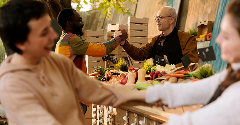
New environmental food scoring standards emerge
30 Sep 2024
EIT Food and Foundation Earth collaborate to launch environmental food scoring for products entering the global supply chain.
Read more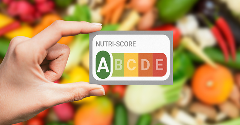
Danone removes NutriScore from products
20 Sep 2024
Following an algorithm update that gives some of its sweetened drinks a worse score, Danone has removed the front-of-pack label, NutriScore, from all of its products – putting profit before public health, say campaigners.
Read more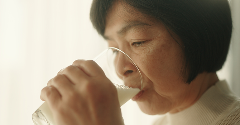
Nestlé develops a new fat reduction method for dairy ingredients
26 Aug 2024
A Brazil-based Nestlé research and development team has developed a way to reduce the fat in milk powder by as much as 60%, without impacting the key characteristics that consumers enjoy.
Read more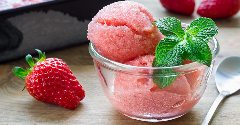
Better Juice expands its range to sorbets
16 Aug 2024
Food tech startup Better Juice has developed a technology to reduce the sugar content in fruit sorbets. The process retains the natural vitamins, minerals, and flavours of fruit, while offering manufacturers an easy-to-implement and scalable solution t...
Read more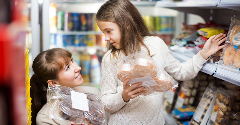
German study reveals high sugar, fat, and salt levels in children's foods
13 Aug 2024
The food industry is making slow progress in reducing the high levels of sugar, fat, and salt in German food and beverage products marketed to children, according to the Max Rubner Institute (MRI).
Read more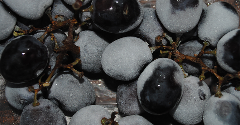
Swedish court overturns prohibition on winery’s use of imported frozen grapes
12 Aug 2024
Swedish company Drood Winery has successfully challenged the Swedish Food Agency’s decision to prohibit the production and sale of their product made from frozen grapes imported from Iran.
Read more
Paris Olympics: Food and beverage brands champion health, fun, and sustainability
5 Aug 2024
Food and beverage brands are aligning with the Paris Olympics 2024 Food Vision, which emphasises sustainability, local sourcing, and plant-based diets.
Read more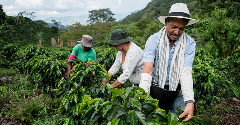
The coffee supply chain is failing farmers, says Solidaridad
30 Jul 2024
The coffee industry’s economic model means its profits do not reach farmers, despite there being enough value to be shared all along the supply chain, according to a new report by Solidaridad Network and IDH.
Read more